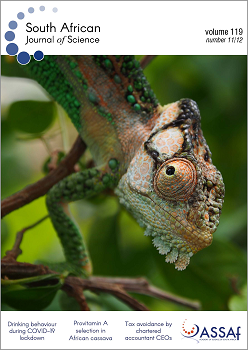Herbicide resistance cases in South Africa: A review of the current state of knowledge
DOI:
https://doi.org/10.17159/sajs.2023/15228Keywords:
herbicide dosage, mechanism of resistance, mode of action, R/S ratios, sustainable use of herbicidesAbstract
Herbicides play a major role in weed management worldwide. However, herbicide resistance is a global challenge that threatens weed management and sustainable agriculture. In South Africa, over 36 years, ten weed species have evolved resistance to five modes of action. In this review, cases of herbicide resistance that were published in scientific journals, proceedings of congresses, theses or dissertations, and in the international survey of herbicide-resistant weeds, were included to give national and international scientists’ perspectives on the current status of herbicide resistance in South Africa. Since the last review was published in 2010, there have been new insights and novel techniques to document the molecular mechanism of herbicide-resistant weeds. Most cases of herbicide resistance in South Africa involved monocot and dicot weeds which are problematic in various cropping systems such as Lolium spp. (annual ryegrass), Phalaris spp. (canary grass), Avena spp. (wild oats), and Raphanus raphanistrum L. (wild radish). Understanding the extent of herbicide resistance and the molecular mechanism involved in herbicide resistance is paramount to developing novel techniques to manage herbicide-resistant weeds.
Significance:
- Data presented in this review help raise awareness of the threat of herbicide resistance in South Africa.
- Herbicide resistance in South Africa continues to evolve steadily through a wide range of weed species and modes of action.
Downloads
Published
Issue
Section
License

All articles are published under a Creative Commons Attribution 4.0 International Licence
Copyright is retained by the authors. Readers are welcome to reproduce, share and adapt the content without permission provided the source is attributed.
Disclaimer: The publisher and editors accept no responsibility for statements made by the authors
How to Cite
- Abstract 781
- PDF 931
- EPUB 359
- XML 187
- Supplementary material 468













.png)